1. What is the purpose of business immigration?
Business immigration refers to the process of individuals relocating to the United States for work or investment purposes. It encompasses various visa categories designed to meet the needs of employers, entrepreneurs, and investors.
2. What are the common U.S. business immigration visa categories?
Common business immigration visa categories include H-1B for skilled workers, L-1 for intracompany transfers, E-2 for investors, and EB-5 for immigrant investors, among others.
3. How can I sponsor an employee for a work visa (e.g., H-1B or L-1)?
Employers can sponsor employees for work visas by filing the appropriate petition with the U.S. Citizenship and Immigration Services (USCIS) and meeting the specific eligibility criteria for each visa category.
4. What is the EB-5 Immigrant Investor Program, and how does it work?
The EB-5 program allows foreign investors to obtain U.S. green cards by making qualifying investments in new commercial enterprises that create jobs in the U.S.
5. How long does it take to process a business immigration application?
Processing times vary depending on the visa category and individual circumstances. Generally, it is advisable to start the application process well in advance to account for potential delays.
6. Can a foreign entrepreneur start a business in the U.S.?
Yes, foreign entrepreneurs can start a business in the U.S. The E-2 visa is one option for those looking to invest a substantial amount in a U.S. enterprise.
7. What are the eligibility criteria for the O-1 visa for individuals with extraordinary abilities or achievements?
The O-1 visa is for individuals with extraordinary abilities in fields such as science, arts, education, business, or athletics. Eligibility criteria include a high level of achievement and recognition in the respective field.
8. How can employers ensure compliance with U.S. immigration laws for their foreign workers?
Employers can stay compliant by understanding and following the rules and regulations associated with each visa category. Regularly reviewing immigration policies and consulting with immigration professionals is advisable.
9. Can a foreign worker change employers while on a work visa?
In certain cases, foreign workers can change employers while on a work visa. However, this process is subject to specific conditions and often involves filing a new petition with USCIS.
10. How can I expedite the immigration process for urgent business needs?
While some visa categories offer premium processing options for faster adjudication, expediting the process may have limitations. It's crucial to plan ahead and explore available options with immigration experts. Contact us today.
11. What is the difference between immigrant and non-immigrant visas in the context of business immigration?
Immigrant visas (such as EB-5) lead to permanent residency, while non-immigrant visas (e.g., H-1B, L-1) are temporary and do not automatically result in permanent residency.
12. Can family members accompany a foreign worker or investor on a business visa?
Many business visa categories allow for dependents (spouses and unmarried children under 21) to accompany the primary visa holder to the U.S. They may be eligible for dependent visas, such as H-4 or L-2. Please contact us for your unique consultation.
13. Are there annual quotas or caps for business immigration visas?
Some visas, like the H-1B, have annual numerical limits. It's essential to be aware of these caps and plan accordingly, as they may impact the availability of visas in a given fiscal year.
14. What is the process for obtaining a Green Card through employment sponsorship?
Green Cards through employment typically involve a multi-step process, starting with the employer filing a labor certification application and progressing through the immigrant petition and adjustment of status or consular processing.
15. Can a business sponsor an employee for a Green Card directly?
Yes, employers can sponsor employees for Green Cards. The process usually involves demonstrating the unavailability of U.S. workers for the position and obtaining approval from the Department of Labor and USCIS.
16. What is the significance of the PERM Labor Certification process in employment-based immigration?
The Program Electronic Review Management (PERM) Labor Certification is a crucial step in obtaining certain employment-based Green Cards. It involves demonstrating that there are no qualified U.S. workers available for a particular position.
17. Are there any special considerations for hiring international students on F-1 visas?
Employers can hire international students on F-1 visas through Optional Practical Training (OPT) or Curricular Practical Training (CPT) programs, but there are specific guidelines and limitations to be aware of.
18. Can an individual apply for a business visa without a job offer from a U.S. employer?
While some business visas require a job offer from a U.S. employer, others, such as the E-2 visa for investors and the EB-2 National Interest Waiver, allow individuals to apply without a specific job offer.
19. How long can a foreign worker stay in the U.S. on a business visa?
The duration of stay varies by visa category. Some visas are issued for a specific period, while others may be extended or converted to different visa types.
20. What steps should an employer take in the event of a change in corporate structure affecting sponsored employees?
Employers undergoing changes like mergers, acquisitions, or restructuring should assess the impact on sponsored employees and take appropriate steps to ensure compliance with immigration laws.
